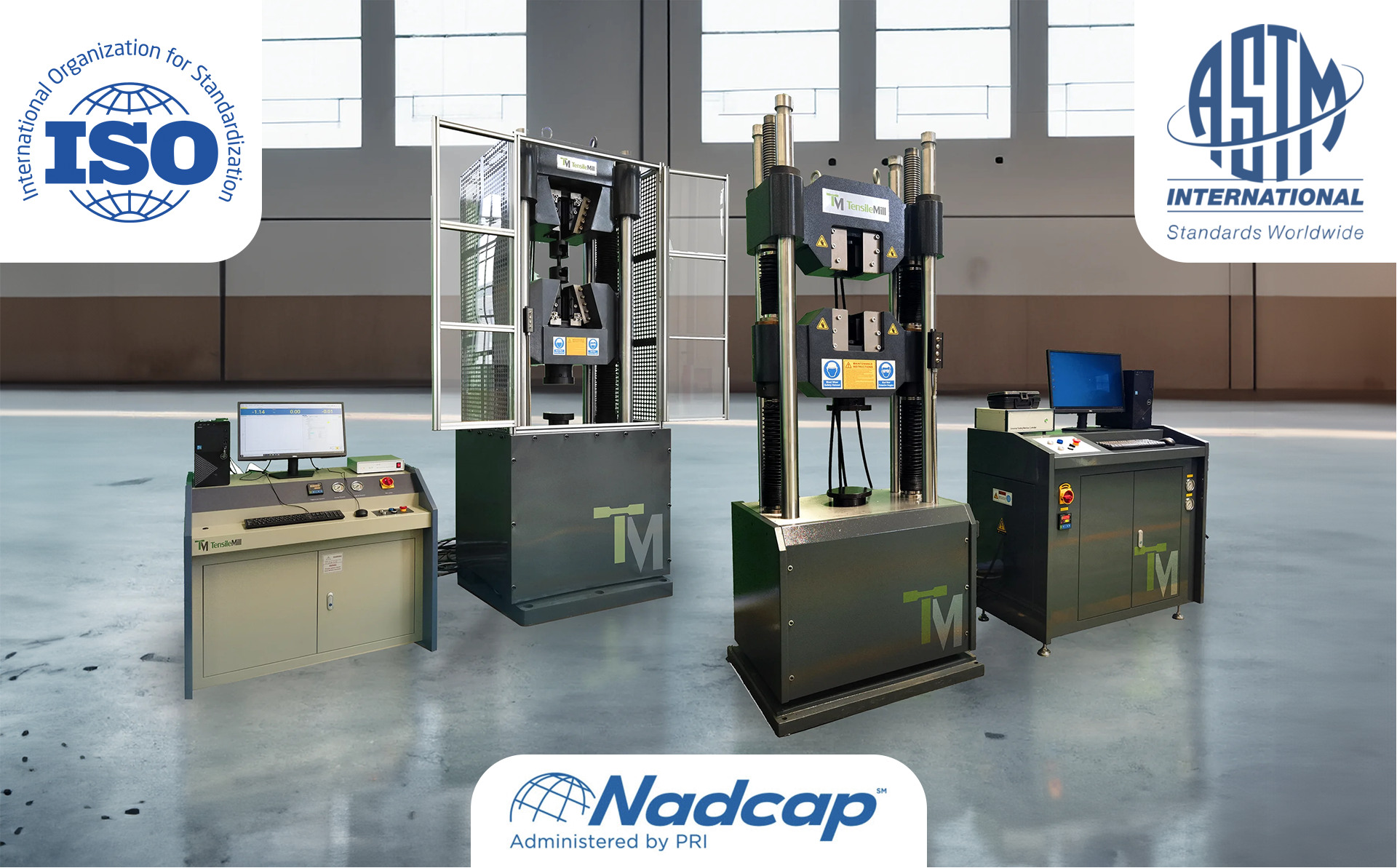
Buying tensile testing equipment is one thing — getting it properly certified is another. Many laboratories and manufacturers assume that once the machine is installed, it’s ready for critical testing. But without accredited calibration and certification, even the most advanced machines can fail to meet industry standards. This can lead to inaccurate results, failed audits, or even lost business opportunities.
At TensileMill CNC, we offer a clear solution to this problem. Our certification services help you meet strict industry requirements like ISO, ASTM, and NADCAP, whether you’re using our equipment for tensile tests or systems from other manufacturers. From tensile testing machines and load cells to extensometers and specimen preparation tools, we support full compliance through our trusted network of ISO 17025-accredited partners.
Below, you’ll find a breakdown of the key standards we support, the type of equipment we service, and how our team helps you stay audit-ready at all times.
Why Certification Matters in Materials Testing
If you’ve never dealt with certification before, are looking to better understand the process, or simply want more clarity about its role in materials testing, let’s start with the basics: why is certification so important? Below are the key reasons:
1. Consistent and Reliable Results
Certified equipment delivers consistent accuracy across multiple tests. Load cells and universal testing machines are guaranteed to remain precise by calibration standards such as ASTM E4 and ISO 7500-1, which mitigate variations caused by environmental factors or wear.
2. Global Acceptance and Traceability
Using ISO 17025‑accredited calibration labs means your measurements are traceable to national standards and accepted worldwide. This facilitates trade, compliance, and customer confidence.
3. Industry Standards Audit Readiness
Equipment calibrated in compliance with ISO 17025, ASTM, and NADCAP meets the stringent standards used by the aerospace, defense, and automotive industries. It is non-negotiable during the accreditation and supplier audit processes.
4. Increased Operational Efficiency
Accredited equipment minimizes retests, reduces downtime, and reduces rework. Automated calibration routines simplify procedures, thereby reducing labor costs and saving time for laboratories.
5. Increased Market Access and Reputation
NADCAP accreditation is a key requirement for aerospace and defense suppliers. More than 90% of NADCAP-accredited companies report new contracts and stronger client trust. Similarly, ISO 17025 accreditation signals technical competence and quality, giving labs a competitive edge.
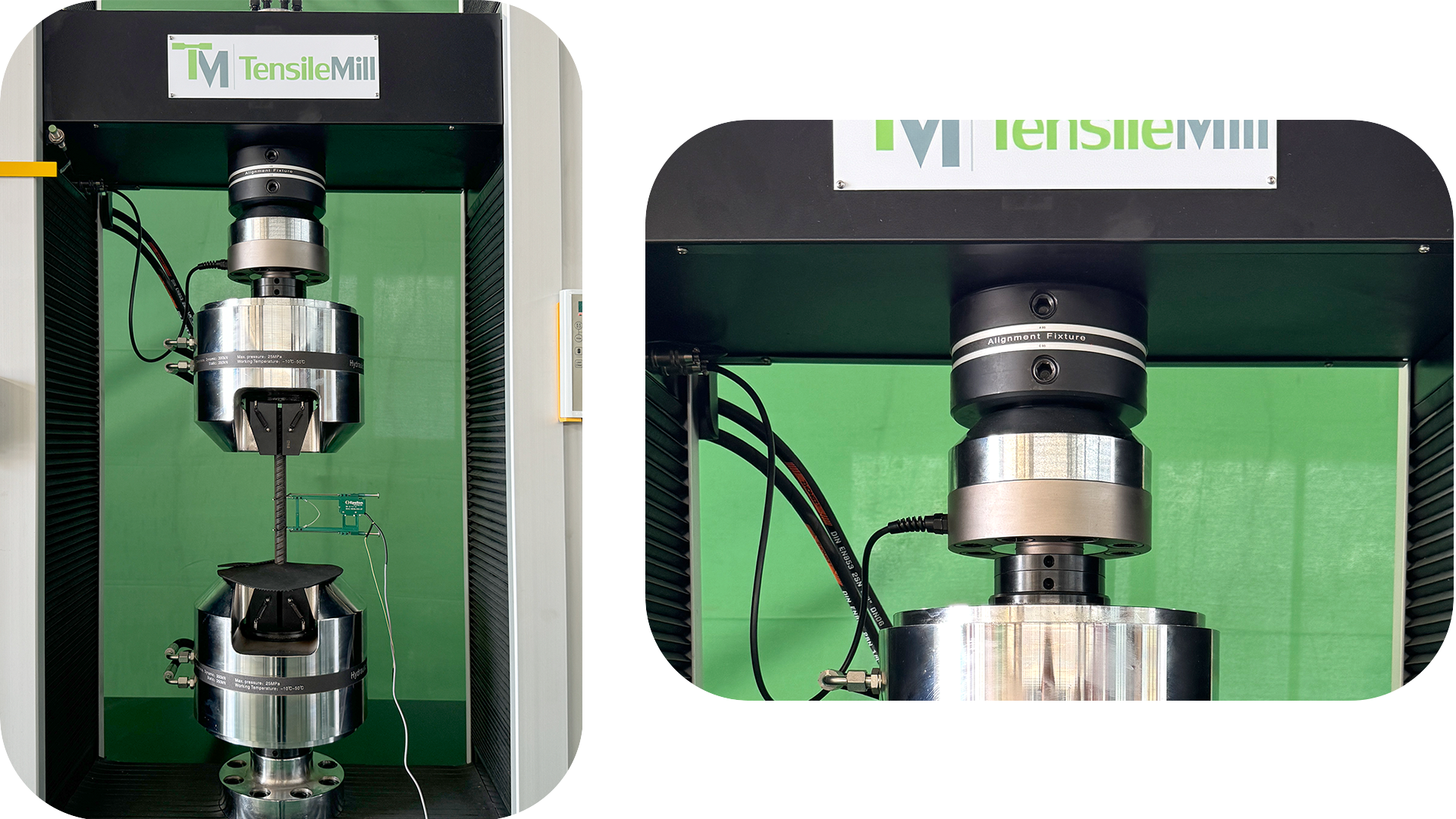
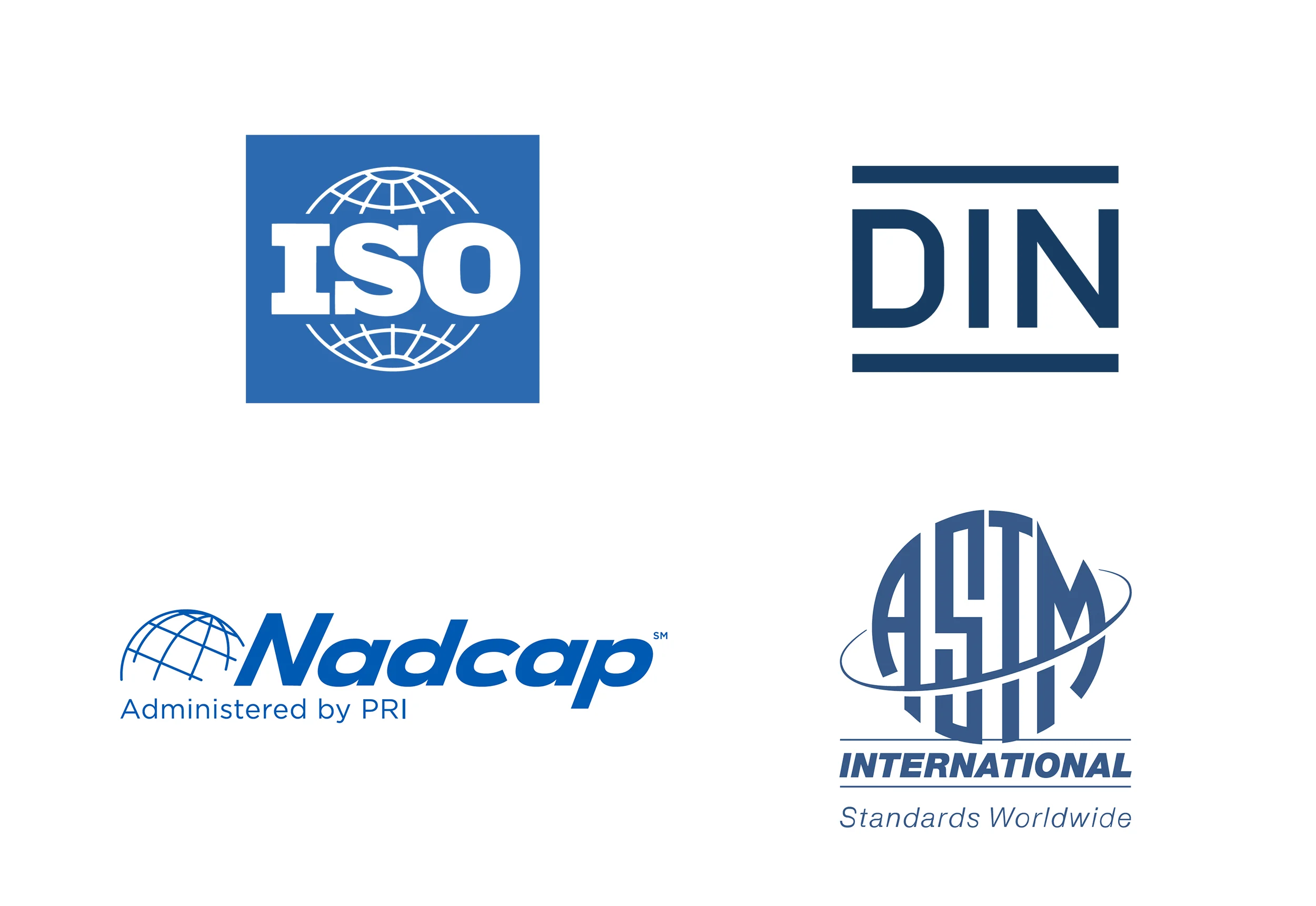
Standards Covered by Our Certification Services
We support many globally accepted standards that apply to tensile testing machines, force measurement systems, extensometers, and specimen preparation equipment. Below is an overview of the most important standards we work with:
ISO/IEC 17025:2017 – General Requirements for the Competence of Testing and Calibration Laboratories
ISO/IEC 17025:2017 is the global benchmark for testing and calibration labs. It defines how laboratories must operate to produce technically valid results, including traceability, documented procedures, and uncertainty analysis.
Through our ISO 17025-accredited partners, we facilitate certification that ensures your testing machines, extensometers, and load cells are calibrated according to internationally accepted methods. This allows your equipment to produce data that regulators, auditors, and clients can fully trust — whether you're testing for internal purposes or regulatory submission.
ASTM E4 – Standard Practices for Force Verification of Testing Machines
ASTM E4 outlines how to verify the force accuracy of tensile and compression testing machines. It applies to the load-measuring system and defines performance classes such as Class A.
Machines certified to ASTM E4 are validated against precise load application ranges. We help you achieve compliance by facilitating calibration for your universal testing machines (UTMs), load frames, and force-measurement instruments — guaranteeing their readings remain consistent and accurate under different loads.
ISO 7500-1 – Verification of Force-Measuring Systems of Testing Machines
ISO 7500-1 is a European and international standard that defines accuracy classes for force-measuring systems. Common classes include Class 1 and the highly precise Class 0.5.
Unlike ASTM E4, ISO 7500-1 focuses more on force measurement accuracy over time and under different test conditions. Certification to this standard is especially important for labs working across multiple markets or countries, as it aligns your equipment with global compliance needs.
ASTM E1012 – Standard Practice for Verification of Testing Frame Alignment
ASTM E1012 deals specifically with frame alignment — a critical factor in tensile, compression, and fatigue testing. Misaligned load paths can lead to incorrect results and premature failure of samples.
This standard uses strain-gaged alignment specimens to verify that load is applied concentrically. We support certification using specialized tools that verify and adjust axial alignment to ≤5% coaxiality, helping meet high-precision testing needs, especially in aerospace and defense sectors.
ASTM E2309 – Verification of Displacement Indicators for Cable Extension Transducers
ASTM E2309 ensures the accuracy of cable-type extensometers and displacement sensors. These devices track movement or elongation during a test and must provide correct readings to ensure meaningful strain data.
Certification under this standard confirms the performance of your extensometers and cable transducers using calibrated indicator systems. It's a key part of equipment validation when accurate displacement measurement is required.
ASTM E2658 – Verification of Displacement Measuring Systems Using Stopwatch Techniques
ASTM E2658 provides a simplified, stopwatch-based method for verifying displacement devices. It’s particularly useful for verifying smaller systems or backup equipment where full digital calibration isn't required.
Despite its simplicity, this method must still meet strict accuracy tolerances. Certification to this standard allows your lab to maintain measurement integrity even when advanced equipment is unavailable or in secondary use.
Accreditation Services and Industry Compliance
In addition to certified individual equipment, we also assist laboratories and manufacturers in fulfilling all accreditation requirements. This is of particular relevance for facilities that operate in industries that are highly regulated, such as aerospace and defense. Among the most popular programs in this field is NADCAP, which defines strict criteria for quality, consistency, and documentation in the testing and manufacturing processes.
NADCAP: Process Accreditation for Aerospace and Defense
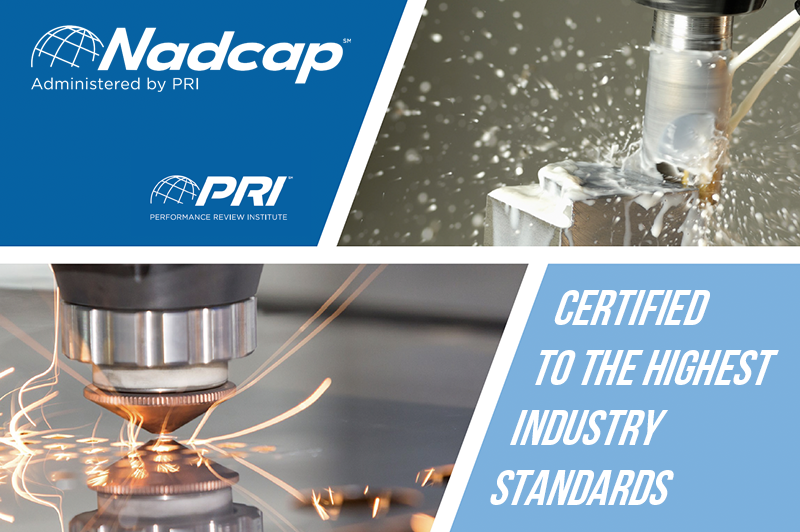
The Performance Review Institute (PRI) supervises the international accreditation system known as NADCAP (National Aerospace and Defense Contractors Accreditation Program). Unlike equipment calibration standards like ASTM or ISO, NADCAP concentrates on the entire testing workflow, including tools, procedures, documentation, and repeatability.
This accreditation is necessary for organizations that provide critical components or testing services to the aerospace, defense, and space sectors. It removes the necessity for many customer audits in favor of a single, standardized audit, which reduces administrative burden and guarantees complete compliance with industry guidelines.
NADCAP requires proof that equipment is properly calibrated, that test procedures are consistent, and that all processes meet strict quality assurance criteria. Laboratories are expected to demonstrate full traceability of measurements, proper alignment, and process control. Many major OEMs and contractors will only work with NADCAP-accredited suppliers, making this program a requirement—not an option—for long-term partnerships and compliance.
At TensileMill CNC, we support your path to NADCAP accreditation by providing certified testing equipment, specialized alignment devices with coaxiality precision of ≤5%, and access to ISO 17025-accredited calibration services. Whether you're upgrading your existing system or preparing for a first-time audit, we help you meet the technical requirements and supply the documentation needed for successful NADCAP compliance.
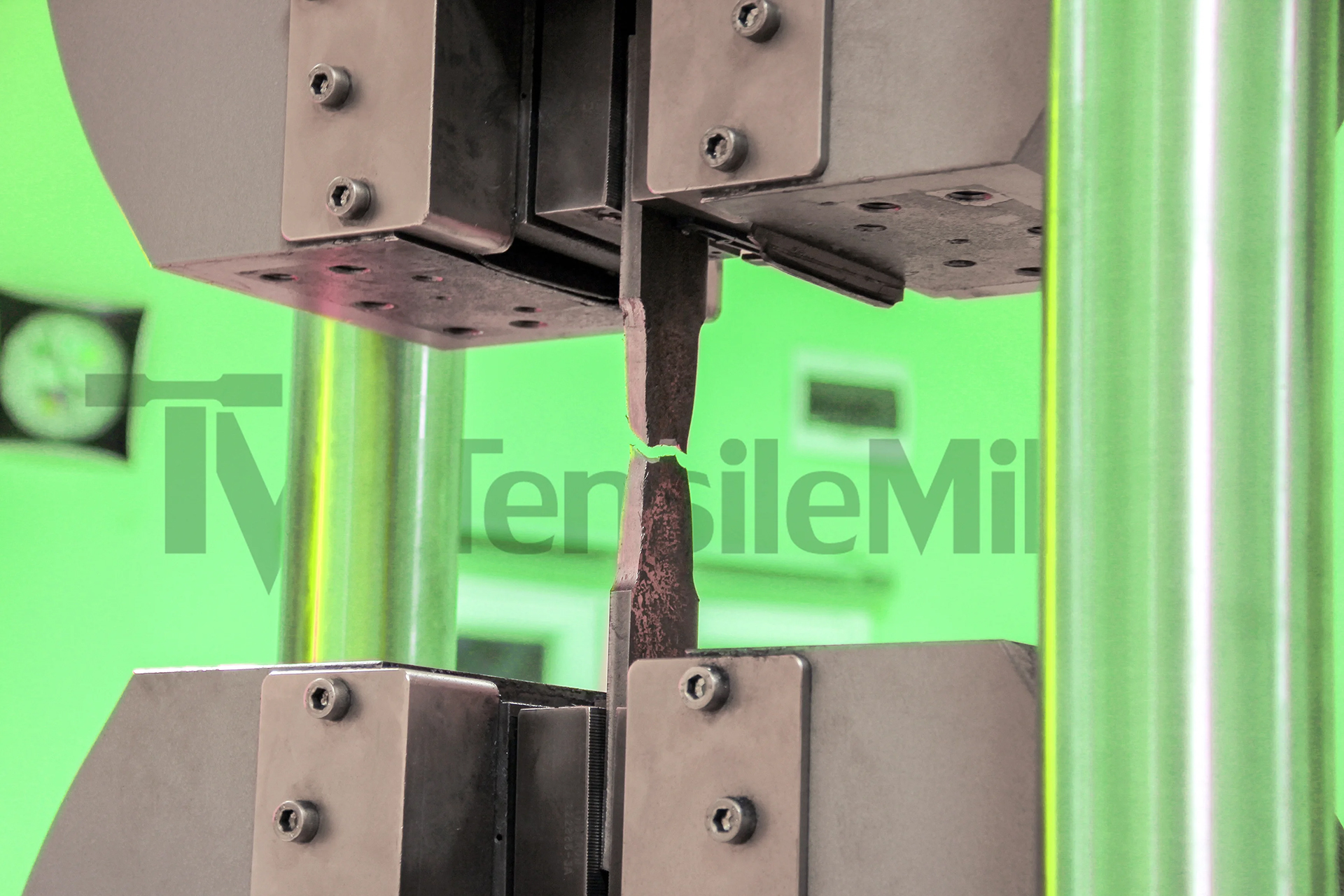
Full-Service Calibration Packages with Long-Term Value
At TensileMill CNC, calibration means more than ticking a compliance box — it's about giving your equipment the precision and care it needs to perform reliably year after year. That’s why our calibration service packages are designed to support not only your testing equipment but also your team and testing process.
Our standard calibration services include:
- Certified force verification and displacement calibration
- Traceable calibration certificates from ISO 17025-accredited labs
- Compatibility with third-party systems including Instron and Tinius Olsen
- Coverage of major standards like ISO 17025, ASTM E4, and ISO 7500-1
To extend the lifespan and stability of your machines, we also provide:
- Preventive Maintenance (PM) at no additional cost
- Operator training for both new and experienced staff
- Support for NADCAP-aligned alignment checks and audit preparation
Whether you're recertifying legacy equipment or setting up a new lab, our packages are tailored to help you maintain accurate, repeatable results while minimizing unplanned downtime. Trusted across North America, our calibration services are used by QA departments, independent testing labs, and high-precision manufacturers that rely on consistent, standard-compliant performance.
Take the Next Step Toward Full Compliance
Proper certification and accreditation are needed for producing results that are reliable, no matter whether you are the operator of a single testing machine or the manager of a fully equipped laboratory. TensileMill CNC offers hands-on support, technical accuracy, and industry experience to make sure that you are audit-ready, efficient, and compliant.
Let us simplify your certification process for both new and existing equipment. Request your certification today and take the next step toward reliable, traceable, and industry-approved materials testing.
